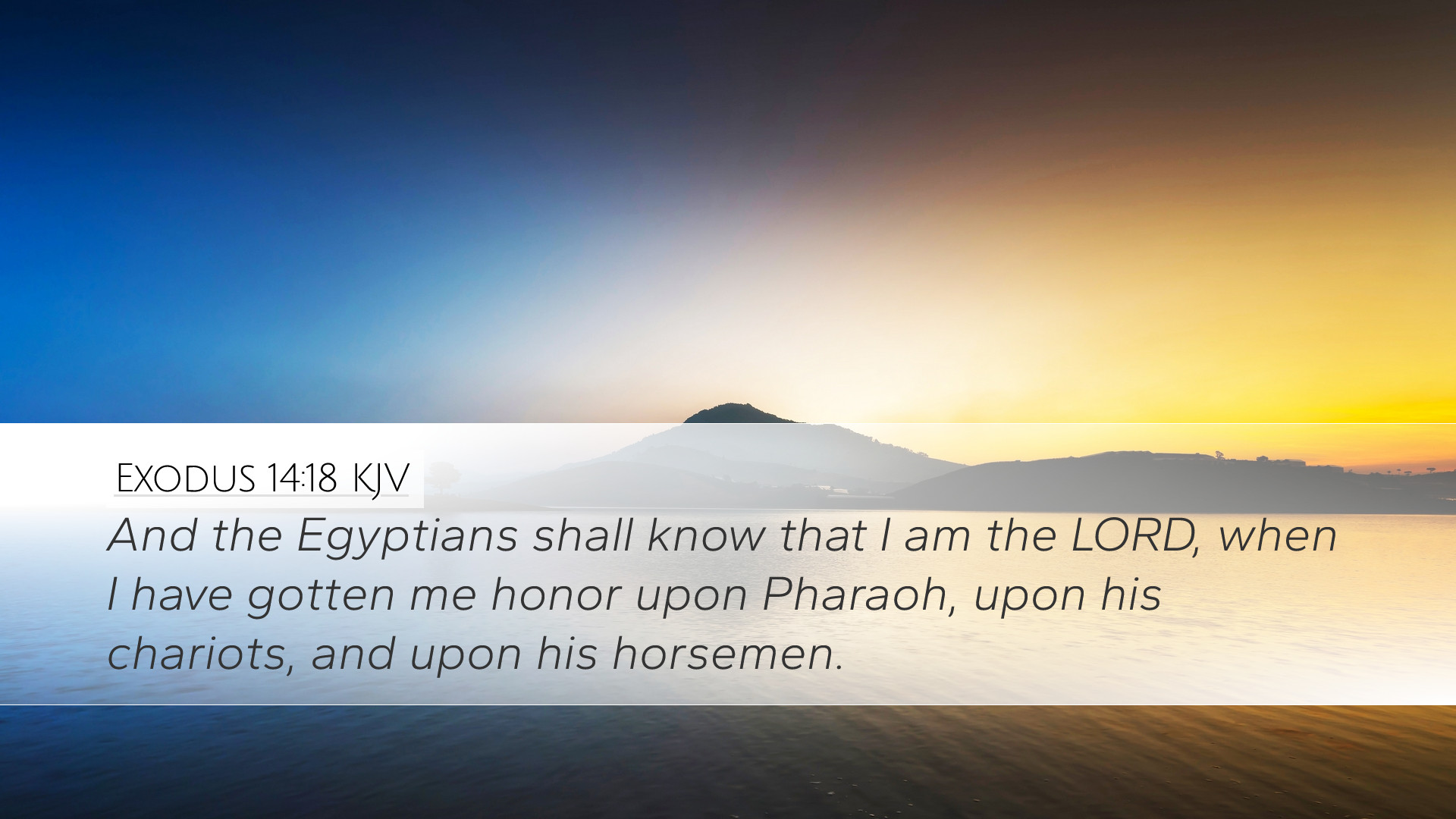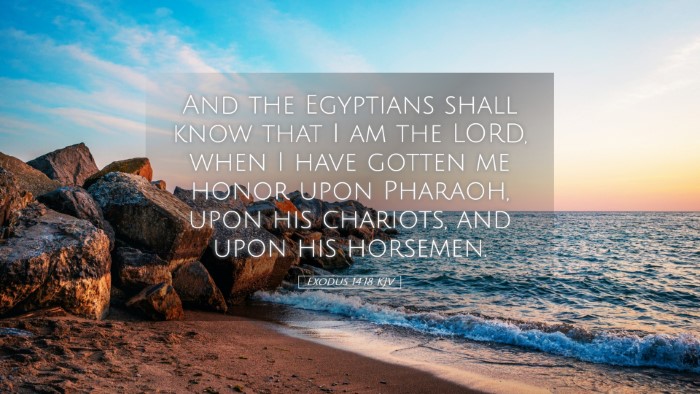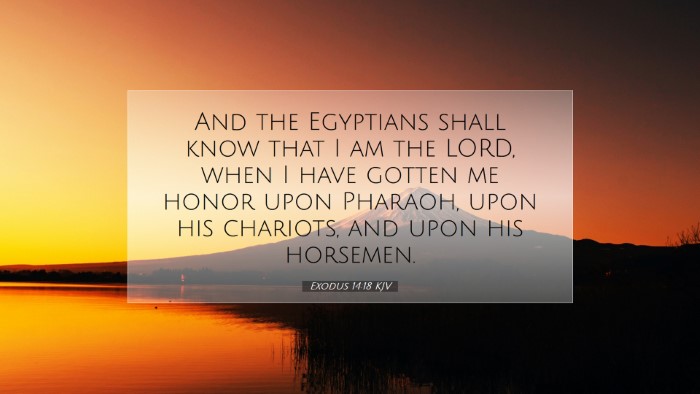Commentary on Exodus 14:18
Verse: Exodus 14:18 (KJV) - "And the Egyptians shall know that I am the Lord, when I have gotten me honor upon Pharaoh, and upon all his host, upon his chariots, and upon his horsemen."
Introduction
This verse occurs within the larger narrative of the Israelites’ exodus from Egypt, a pivotal moment in biblical history. Here, God proclaims a decisive act intended not only for the deliverance of His people but also for the revelation of His sovereignty to the Egyptians and the world.
Theological Significance
Exodus 14:18 is laden with theological implications regarding God’s nature, His justice, and His holiness.
Divine Revelation
The primary purpose of the miraculous events surrounding the Exodus was for God to reveal Himself. As Matthew Henry points out, the culmination of the plagues and the parting of the Red Sea was designed to starkly demonstrate God's power. The Egyptians, seeing the miraculous events, were to come to the realization of the supremacy of the God of Israel.
God's Sovereignty
Albert Barnes emphasizes that God's orchestration of these events showcases His ultimate authority over nations and rulers. The phrase "when I have gotten me honor upon Pharaoh" highlights God’s intent to display His power by overcoming the mightiest empire of the time.
The Concept of Honor
The use of "honor" speaks to the glory that God seeks to manifest through His actions. Adam Clarke expounds on this notion, suggesting that divine honor is not merely for display, but serves a dual purpose: the vindication of God's people and the demonstration of God's nature, which is both just and merciful.
Contextual Analysis
Examining the context of this verse helps in grasping its full meaning.
The Plagues Before the Exodus
Before reaching this moment, God had executed a series of plagues upon Egypt, each one a judgment against the Egyptian gods and a clear sign of His power. The Egyptians were witness to these signs, and yet they hardened their hearts. This adds depth to God’s intention in this verse; it was not merely to punish but to inform and reveal.
The Deliverance of Israel
Exodus 14 is pivotal for understanding Israel's identity as God's chosen people. The passage speaks to God's commitment to His covenant with Israel. As the Israelites are pursued by Pharaoh’s army, God’s deliverance is imminent, demonstrating His power to save.
Exegetical Analysis
From an exegetical standpoint, the choice of words in Exodus 14:18 is significant.
“The Egyptians shall know”
The phrase indicates a purpose clause—this action of God is aimed at the Egyptians. It underlines a universal truth: God acts not only for His people but also to make Himself known among the nations.
“I am the Lord”
This self-identification is crucial throughout Scripture and signifies God’s eternal and unchanging nature. By declaring “I am,” God emphasizes His presence and authority over all circumstances; He is actively involved in the unfolding of history.
Application for Today
For pastors, theologians, and students of Scripture, Exodus 14:18 contains powerful lessons for teaching and application.
Understanding God’s Character
In teaching God’s attributes, this verse serves as a poignant reminder of His justice and majesty. Believers today must recognize that the same God who delivered Israel still acts sovereignly within history.
Evangelism and Witnessing
For evangelism, the purpose of that great act of redemption and revelation challenges the church to communicate the sovereignty and majesty of God effectively. How we conduct ourselves, reflecting His glory, can lead others to acknowledge God.
Hope in Deliverance
In times of distress, believers can draw strength from the assurance that God intervenes in human affairs. Just as He delivered Israel from bondage, He is capable and willing to provide hope and rescue in our lives today.
Conclusion
Exodus 14:18 elegantly encapsulates the character of God and His redemptive purposes. It speaks to His sovereignty and the profound truth that God desires to reveal Himself to the world through His mighty acts. Students of the Word are challenged to explore and reflect on these themes as they seek to understand their faith and the nature of God.


